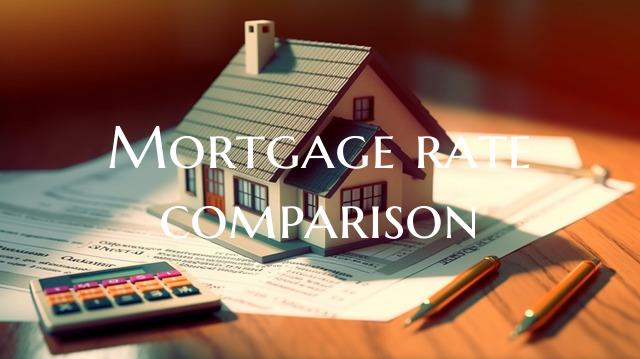Mortgage rate comparison

When it comes to securing a mortgage for your dream home, one of the most crucial aspects to consider is the mortgage rate. Mortgage rates can significantly impact your monthly payments, total interest paid over the life of the loan, and ultimately, the affordability of your home.
To ensure you make an informed decision, conducting a thorough mortgage rate comparison is essential. Here are some key points to keep in mind when comparing mortgage rates:
1. Types of Mortgage Rates: There are generally two types of mortgage rates - fixed and adjustable. Fixed rates remain the same throughout the loan term, providing stability and predictability in monthly payments. On the other hand, adjustable rates fluctuate based on market conditions, potentially offering lower initial rates but with the risk of increasing over time.
2. Interest Rates: The interest rate directly affects the overall cost of your mortgage. Even a small difference in the interest rate can result in significant savings or costs over the life of the loan. Be sure to compare interest rates from multiple lenders to find the best offer.
3. Annual Percentage Rate (APR): In addition to the interest rate, the APR includes other costs associated with the loan, such as origination fees, points, and mortgage insurance. Comparing APRs can give you a more comprehensive understanding of the total cost of each loan.
4. Loan Term: The length of the loan term can also impact the mortgage rate. Generally, shorter loan terms have lower interest rates but higher monthly payments, while longer loan terms may have higher interest rates but lower monthly payments. Consider how different loan terms align with your financial goals.
5. Lender Fees: Aside from the interest rate and APR, be sure to factor in any additional fees charged by the lender, such as application fees, appraisal fees, or closing costs. These fees can vary between lenders and significantly impact the overall cost of the loan.
6. Qualification Requirements: Different lenders may have varying qualification requirements, such as credit score minimums, debt-to-income ratios, and down payment amounts. Make sure to compare these requirements to determine which lenders you are eligible to borrow from.
In conclusion, conducting a mortgage rate comparison is a crucial step in the home buying process. By carefully evaluating and comparing rates, terms, fees, and other factors, you can find a mortgage that not only fits your budget but also helps you achieve your homeownership goals.
